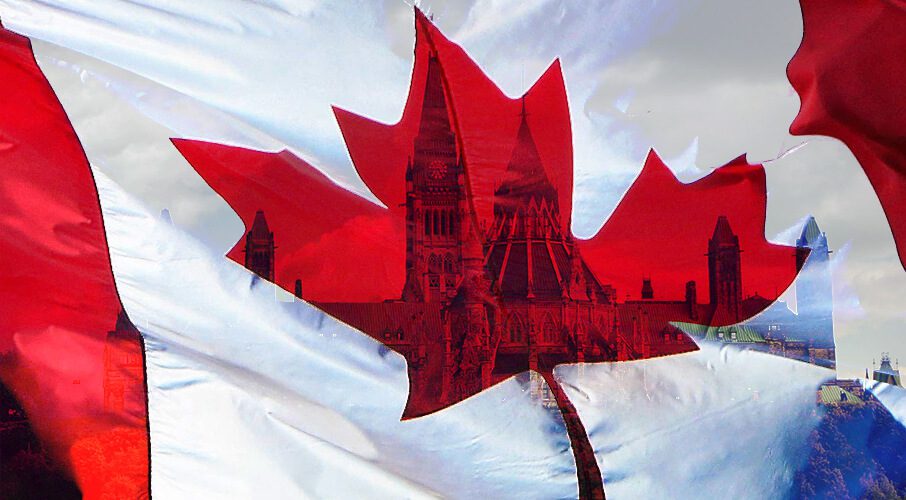This article originally appeared in the Globe and Mail.
By Ken Coates, July 1, 2022
To say the edge has come off the country’s Canada Day celebrations is to state the obvious. At The Forks in Winnipeg, Canada Day has been replaced by New Day, a vague and unimaginative phrase that hardly pulls at the heartstrings. Elsewhere, efforts to realign our celebrations, heritage, monuments, and celebrations with 2022 sensitivities have mushroomed into an assault on Canadian history and, for some, the very concept of Canada.
Deep currents are at play. National dissatisfaction with the governing Liberals is matched only by despair about the re-loading Conservative Party of Canada and surprise about the fast-disappearing New Democratic Party. The pandemic cut deeply into national confidence and the federal government’s wanton spending has distressed many Canadians, save perhaps those in receipt of the millions of cheques dispersed over the past two years.
The Freedom Convoy’s civil disobedience, anti-vax mandate rhetoric and pro-Libertarian values has shaken national consciousness in ways still unfolding. Quebec continues to attack English language rights, an assertive response mirrored by the aggressive pro-province rhetoric coming from some Alberta conservative politicians.
The country is adrift, largely abandoned by political leaders who seek office more than national improvement, and by people focused on what governments can provide for them personally. Canada lacks a defining vision or shared values, save for a destructive combination of political, regional, and personal self-interest. Our over-confidence about national health care as a defining and signature anti-American achievement has been demolished by the system’s inability to keep up with the demands of the pandemic.
Loud criticism of Canada is nothing new. For generations marginalized people who were left out of the national narrative or denied an appropriate share of prosperity spoke up against Canadian symbols, icons, and celebrations. What marks 2022 is the near silence of people who believe strongly in Canada and feel blessed to be citizens, permanent residents or refugees in this country. Their muted response to severe criticisms of Canada is indefensible.
By almost any metric – income, education, health care, rule of law, strong institutions, personal freedom, defense of liberties – Canada ranks among the best in the world, a place where millions of people desire to move to. Canadians show remarkable support for historic high levels of immigration, and substantial frustration at Ottawa’s inability to process applications.
Like all nations, Canada has blemishes and scars, both from generations past and current shortcomings. We are much stronger for being forced to acknowledge and discuss historical failings and contemporary weaknesses, though nobody can deny that Canada still works better for some people than for others.
Canada’s embrace of reconciliation has been more comprehensive and sincere than would have predicted a decade ago. Support for women’s reproductive rights remains substantially unchallenged, as are the public, political, and legal endorsement of the rights of gay, trans, two-spirited, and non-binary people. This is not, despite occasional rhetoric from extreme detractors, a country at war with its own citizens. Indeed, there is remarkable political consensus on issues that only recently caused bitter divisions.
Canada can do much better with respect to Indigenous peoples and people of colour, but it will not move forward by turning apologies into a national artform or by imposing patterns of speech, concepts, and skewed interpretations of our past. Real advances come through arduous work by people, organizations, companies, communities, and the nation. Improvements come, as they have with gay rights and respect for Indigenous peoples, through hard-won legal and political struggles that champion tolerance and political responsiveness.
Many Canadians are alarmed by attempts to rename Canada Day and our institutions and buildings. We should celebrate the desire to change the country for what they feel is the better, but remember it is also okay to disagree with the critics. Indeed, a concerted, positive, and pro-Canadian pushback is overdue. People who understand and respect the country’s past, want to build a better future, and believe there is much to celebrate have been quiet for too long.
One key message stands out from years of disquieting national debates. Critics have treated Canadian history as a zero-sum game, believing some elements must be erased for new perspectives to be added. This is not true. As we construct new public buildings and institutions, erect public monuments and thoughtfully review existing official names, we can strive for real inclusivity.
To those who exploit our tolerance of opinion and find fault with one of the best countries in the world, I extend warm Canada Day greetings. I appreciate their perspectives, even if I despair at times about the nature and substance of their critiques. This nation still has unrealized potential to do great things for Canadians and the world.
Recognizing our flaws and acknowledging the painful long-term legacies of discriminatory policies and programs is not a reason to turn on the country. These critiques help us continue building an even better, more inclusive nation, one that appropriately reflects the country’s historical evolution, our shortcomings and our triumphs.
Celebrate, remember, embrace, and include. These are the core attributes of an appropriate Canada Day!
Ken Coates is a distinguished fellow at the Macdonald-Laurier Institute and a Canada Research Chair at the University of Saskatchewan.






